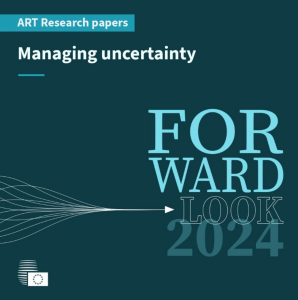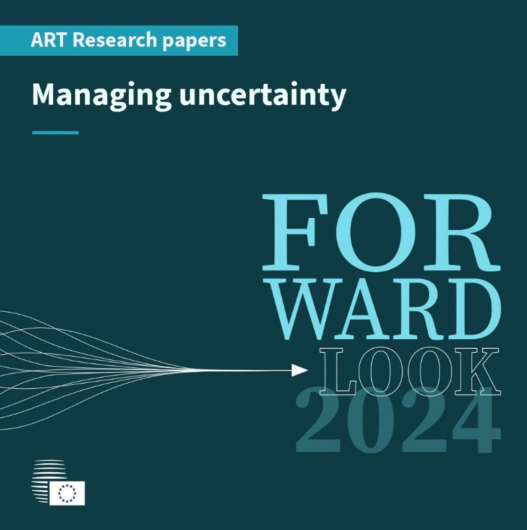
THE COUNCIL OF EUROPE'S 2024 REPORT FORECASTS A YEAR OF UNPRECEDENTED UNCERTAINTIES
2024 will be a year of unprecedented uncertainty created by: a weakening global order, economic transitions and critical elections around the world. The Analysis and Research Team (ART) of the European Council of the EU, has produced its fourth report entitled “Forward Look 2024”, to help manage these uncertainties.
Regarding the risks driving uncertainty, the analysis points first to a global economy in transition, the drivers of which are: changing trade patterns; the end of cheap money; the costs of climate change; vulnerable supply chains; de-risking challenges; and geo-economic fragmentation. The second risk is the weakening of the global world structure due to: global fragmentation; the outbreak of frozen conflicts; challenges for great powers and the rise of middle powers. And finally, he points out that we are in a key election year: more than half of the world’s population will vote this year and there are elections in very important countries; there is a risk of foreign interference in the elections; the electoral campaigns will be very polarized and there is a risk of changes in key policies.
CONTEXTUAL SITUATION
The future is always uncertain, but the year 2024 comes loaded with uncertainties, more than should be the norm. The next twelve months will be key in determining the long-term political context, both inside and outside Europe, and will therefore be critical for the work of the European Council.
In the EU, 2024 will be marked by elections and institutional change. Together with a large number of elections around the world, including the US presidential election, both will be affected and contribute to global uncertainty. While the timing of elections is largely predetermined, the context in which they take place is not. Russia’s invasion of Ukraine in 2022 and the outbreak of war this year in the Middle East are symptomatic of an overturn in a global geopolitical situation.
Clearly, these events have caused us to be in a fragmented world. At the same time, we see challenges to our economic systems. This is partly because globally fragmentation has led to a breakdown in mutual trust and also because of the accumulating demands of national budgets, all in the context of unrelenting pressure driven by the urgent need to address climate change.
This accumulation of uncertainties could lead to the conclusion that any exercise of trying to look into the future risks being futile. The alternative is, of course, to resign and pursue policies in an entirely reactive manner, letting events dictate our agenda.
The report attributes the uncertainty that will dominate the year 2024 to three key factors: global disorder, a changing economy and the many important elections that are to be held around the world.
GLOBAL FRAGMENTATION
Global fragmentation is one of the broader trends that is key to understanding our long-term future. We now see that not only are we moving towards a more fragmented and multipolar global economy, but also that the major “poles” of emerging countries are finding it difficult to retain their power of attraction and to fulfill their traditional role of creating a new international order. The existing multilateral system is struggling to cope and remain relevant. The geopolitical crises observed in recent years are both a symptom and a contributing factor to this trend, which we expect to see even more strongly in 2024 due to internal developments in the major powers.
The global economy is currently undergoing major changes. Our first look into the future already described the evolution of economic models as a critical long-term trend. But we are currently in a transition, a phase in which the old models are increasingly being challenged and revealed as unsustainable, while alternatives have yet to take shape, as the new has not yet established itself as a more stable system.
Economists have often disagreed in their analyses and forecasts, but the significant and growing level of divergence in forecasters’ expectations for 2024 is a sign of fundamental uncertainty.
In the context of this volatile global situation, both politically and economically, 2024 will also be a crucial year for elections around the world. Nearly half of the world’s adult population will go to the polls during the year. Elections themselves are fixed points in the political landscape and are, of course, a vital part of the democratic process. But they are a point of uncertainty, even in the best of times, at least insofar as they disrupt the continuity of government. At the same time, election campaigns can themselves have an impact on the broader political and economic landscape and can even expose and heighten social tensions. This risk is greater in the current context of increasing political polarization and democratic backsliding.
More broadly, we face active hostility towards democracy. Foreign interference and the malicious use of Artificial Intelligence, which manages to spread disinformation, aggravate the situation and the risks could not be higher, at a time when what is at stake is the long-term political system – from the future of the green transition to that of democracy itself.
CONCLUSIONS
“Risks and opportunities may be two sides of the same coin, but they are not simply a matter of chance. The difference between risk and opportunity depends largely on political will and leadership. 2024 will be a year of significant unknowns, but there will be ample scope for the EU to influence and shape its outcomes. The ability to act proactively to mitigate risks and seize opportunities will be the very definition of leadership in the coming year, and this responsibility will fall primarily to the European Council,” the report concludes.
—-
This news item was originally published in Aquí Europa, with whose permission we reproduce it.



